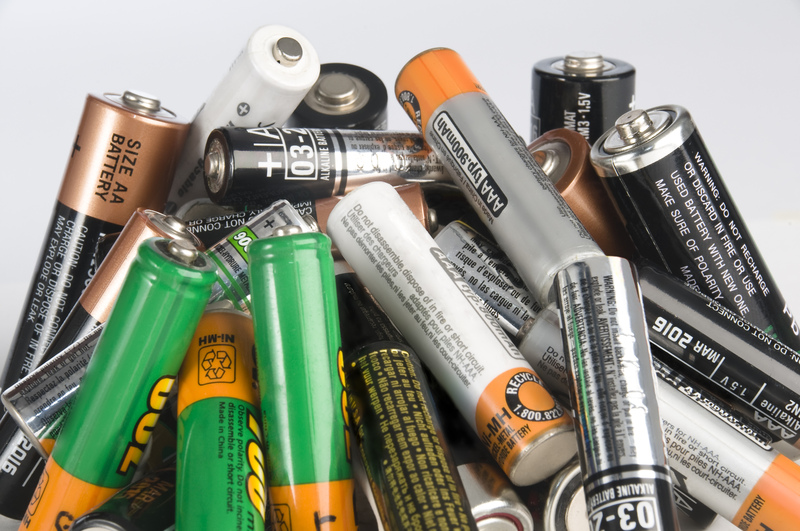Why Safe Disposal of Pots and Pans Matters for the Environment
Properly disposing of old pots and pans is a crucial yet often overlooked part of environmental conservation. Most households will eventually replace their cookware for various reasons, such as wear and tear, non-stick coatings degrading, or simply switching to a new set. But what happens to your discarded pots and pans? Why does it matter how you dispose of them? In this article, we'll dive deep into the environmental importance of responsible cookware disposal, strategies for eco-friendly removal, and actionable steps individuals can take to reduce their kitchen footprint.

Understanding the Problem: Pots and Pans as Waste
Materials Used in Cookware Manufacturing
Most pots and pans are made from metals like aluminum, stainless steel, cast iron, and copper, as well as non-metal components like plastic handles and non-stick coatings. These materials are generally durable, but not all cookware is designed to last forever. Once pans reach the end of their life, it's crucial to consider the impact of their disposal.
- Aluminum and stainless steel: Highly recyclable but not always accepted in curbside bins due to their form.
- Cast iron: Extremely durable, but challenging to recycle because of its weight and size.
- Non-stick coatings (like Teflon): Can leach harmful chemicals if incinerated or buried.
- Plastic handles and accessories: Typically non-recyclable, ending up in landfill.
The Environmental Impact of Improper Disposal
When old pots and pans are thrown out with general waste, they contribute to landfill problems. Here's how unsafe disposal affects the planet:
- Landfill Overflow: Metal cookware can take hundreds of years to fully break down, occupying valuable landfill space and contributing to the growing issue of waste management.
- Soil and Water Pollution: Some non-stick pans contain perfluorochemicals (PFCs) or polytetrafluoroethylene (PTFE), which can leach toxic substances into the ecosystem if not disposed of properly.
- Loss of Reusable Resources: Metals like aluminum and copper require vast amounts of energy to extract and process. Throwing old pots away means losing these valuable, reusable materials.
- Hazardous Air Emissions: Incinerating old cookware, especially if it has plastic handles or synthetic coatings, releases harmful chemicals into the atmosphere.
Why Recycling Pots and Pans is Essential
Recycling your old pots and pans isn't just about making space in your kitchen--it's a critical action to support the environment. Here are key reasons why:
Conserving Natural Resources
Mining metals like aluminum and iron ore is energy-intensive and highly disruptive to ecosystems. By recycling pots and pans, we reduce the need for mining and lower the environmental cost associated with new cookware production.
Reducing Greenhouse Gas Emissions
The production of metals from raw materials generates significant carbon emissions. Recycling old cookware uses far less energy, directly reducing your carbon footprint.
Limiting Harmful Chemical Leaching
Improper disposal can lead to the release of chemicals found in non-stick pans or pots with synthetic coatings. Responsible recycling ensures these substances are handled safely, protecting water sources, wildlife, and human health.
Transition to Circular Economy
Supporting recycling helps move us towards a circular economy, where materials are reused and repurposed instead of being discarded. This model sharply reduces waste, energy use, and the consumption of finite natural resources.
Challenges in Safe Disposal of Pots and Pans
Not All Recycling Centers Accept Cookware
Many municipal recycling programs focus solely on paper, cardboard, plastics, and aluminum cans. Pots and pans often need special handling because of their size, shape, and mixed materials (i.e., metal bodies with plastic or wooden handles).
Composite Materials Complicate Recycling
Some cookware combines metals with non-recyclable parts, making it difficult to process in standard recycling facilities. For instance, non-stick surfaces can contaminate the recycling stream if not removed properly.
The Hidden Hazard of Non-Stick Coatings
Many people are unaware that throwing non-stick pans in the trash can introduce perfluorinated compounds or toxic fumes if incinerated--a serious environmental hazard. In fact, improper disposal of Teflon and similar materials remains a growing concern among environmental agencies.
Eco-Friendly Options for Disposing of Old Cookware
1. Recycle through Scrap Metal Dealers
The best destination for metal cookware is a reputable scrap metal dealer who can dismantle, sort, and recycle the various components. Tips include:
- Remove any plastic or rubber handles, as these are generally not recyclable.
- Clean the cookware before recycling to avoid contamination.
- Call your local scrap metal center to ask if they accept household cookware.
2. Household Hazardous Waste Facilities
Many communities have special collection events or permanent drop-off locations for household hazardous waste (HHW). This is particularly important for non-stick cookware disposal, as the coatings require specific handling.
3. Donation and Upcycling
Before you consider recycling, ask yourself: Could someone else use your old pots and pans?
- Donate clean, gently used cookware to local charities, shelters, or community kitchens.
- Repurpose old pots into planters, organizers, or even creative art projects--keeping them out of the landfill for longer!
4. Manufacturer Take-Back Programs
Some cookware brands and retailers now offer take-back initiatives or recycling programs. If you're buying a new set, ask the store if they'll accept your old ones for responsible recycling.
5. Specialty Recycling Events
Occasionally, municipalities host scrap metal or cookware-specific recycling drives. Watch for community events or inquire at your local waste management center.
The Health and Environmental Impacts of Unsafe Cookware Disposal
Chemical Leaching into Ecosystems
Disposing of non-stick pans in the landfill can result in chemicals like PFOA and PFOS seeping into the soil and groundwater. These substances are linked to health risks including thyroid problems, immune system effects, and cancers.
Burdening Waste Management Systems
Metal objects are bulky and don't break down easily. They take up significant landfill space and impede waste sorting and processing operations, resulting in more expensive and complex waste management.
Recycling vs. Incineration: The Environmental Stakes
While incineration may seem like a quick solution, burning cookware--especially with chemical coatings or synthetic components--releases dangerous toxins into the air. Recycling is always the better environmental choice whenever possible.
Educating Consumers: A Critical Step
Labels and Information
Many consumers are still unaware of how and why to safely dispose of cookware. Effective labeling on products, clearer recycling instructions, and community outreach can dramatically increase responsible disposal rates.
Government and Industry Responsibility
It's not just up to individuals. Manufacturers and policymakers play a critical role by:
- Funding and supporting recycling infrastructure
- Developing more sustainable, recyclable cookware products
- Providing take-back and warranty programs
- Requiring clear product labelling regarding disposal
How Individuals Can Make a Difference
Adopt Environmentally Friendly Habits
Small changes can make a massive impact. To minimize your environmental footprint in the kitchen:
- Buy durable, long-lasting cookware to reduce waste frequency.
- Choose pots and pans with fewer synthetic coatings or plastic parts.
- Research disposal options before you discard, ensuring your cookware doesn't contribute to environmental harm.
- Encourage local recycling programs to expand and accept more household items, including cookware.
Community Initiatives
Start or participate in local cookware recycling drives. Many communities are open to hosting "giveaway" events or swap-meets where cookwares can find new homes, extending their life and keeping them out of landfills.

Summary: The Bigger Picture of Pots and Pans Disposal
The safe, responsible disposal of old pots and pans is more than a household chore--it's a vital part of protecting the environment. With the right knowledge, habits, and community support, it's possible to minimize landfill waste, curb chemical pollution, and promote an earth-friendly lifestyle.
- Recycling: Reduces mining and greenhouse gas emissions, conserves energy and resources.
- Donating: Extends the life of cookware and supports people in need.
- Proper Hazardous Waste Handling: Prevents toxic leaks from non-stick pans and other coatings.
- Community Involvement: Enhances local recycling opportunities and environmental awareness.
Next time you replace your cookware, remember: your decision on how to dispose of your pots and pans truly matters for the environment. Let's work together to build a future where even our kitchen choices reflect our commitment to a healthier, more sustainable world.
Frequently Asked Questions (FAQs) about Cookware Disposal
Can you recycle old pots and pans in standard curbside bins?
*Rarely*. Most standard curbside programs do not accept cookware due to their shape and material composition. Check with local recycling programs or contact a scrap metal dealer.
What should I do with non-stick pans that are no longer non-stick?
Dispose of them through household hazardous waste collections or special cookware recycling programs to prevent chemical pollution.
Are there any creative ways to reuse old pans?
Yes! They can be used as plant containers, tool organizers, or even art pieces. Upcycling keeps items in use and out of landfills.
Why is it dangerous to incinerate pots and pans with plastic parts?
Burning plastic releases toxic compounds and greenhouse gases. It is never recommended to burn cookware containing synthetic materials.
How can I encourage better disposal habits in my community?
Organize or support collection events, educate neighbors, and advocate for expanded recycling services with your local government or waste management company.
Remember: The safe disposal of pots and pans is an easy step you can take to help protect the planet--make the choice to dispose responsibly every time.
